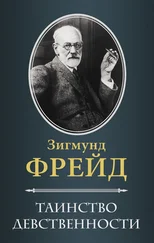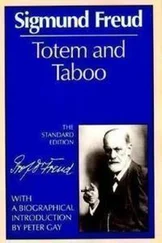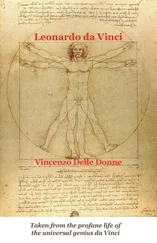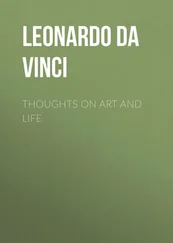Let us expressly emphasize that we have never considered Leonardo as a neurotic or as a "nervous person" in the sense of this awkward term. Whoever takes it amiss that we should even dare apply to him viewpoints gained from pathology, still clings to prejudices which we have at present justly given up. We no longer believe that health and disease, normal and nervous, are sharply distinguished from each other, and that neurotic traits must be judged as proof of general inferiority. We know to–day that neurotic symptoms are substitutive formations for certain repressive acts which have to be brought about in the course of our development from the child to the cultural man, that we all produce such substitutive formations, and that only the amount, intensity, and distribution of these substitutive formations justify the practical conception of illness and the conclusion of constitutional inferiority. Following the slight signs in Leonardo's personality we would place him near that neurotic type which we designate as the "compulsive type," and we would compare his investigation with the "reasoning mania" of neurotics, and his inhibitions with the so–called "abulias" of the latter.
The object of our work was to explain the inhibitions in Leonardo's sexual life and in his artistic activity. For this purpose we shall now sum up what we could discover concerning the course of his psychic development.
We were unable to gain any knowledge about his hereditary factors, on the other hand we recognize that the accidental circumstances of his childhood produced a far reaching disturbing effect. His illegitimate birth deprived him of the influence of a father until perhaps his fifth year, and left him to the tender seduction of a mother whose only consolation he was. Having been kissed by her into sexual prematurity, he surely must have entered into a phase of infantile sexual activity of which only one single manifestation was definitely evinced, namely, the intensity of his infantile sexual investigation. The impulse for looking and inquisitiveness were most strongly stimulated by his impressions from early childhood; the enormous mouth–zone received its accentuation which it had never given up. From his later contrasting behavior, as the exaggerated sympathy for animals, we can conclude that this infantile period did not lack in strong sadistic traits.
An energetic shift of repression put an end to this infantile excess, and established the dispositions which became manifest in the years of puberty. The most striking result of this transformation was a turning away from all gross sensual activities. Leonardo was able to lead a life of abstinence and made the impression of an asexual person. When the floods of pubescent excitement came over the boy they did not make him ill by forcing him to costly and harmful substitutive formations; owing to the early preference for sexual inquisitiveness, the greater part of the sexual needs could be sublimated into a general thirst after knowledge and so elude repression. A much smaller portion of the libido was applied to sexual aims, and represented the stunted sexual life of the grown up. In consequence of the repression of the love for the mother this portion assumed a homosexual attitude and manifested itself as ideal love for boys. The fixation on the mother, as well as the happy reminiscences of his relations with her, was preserved in his unconscious but remained for the time in an inactive state. In this manner the repression, fixation, and sublimation participated in the disposal of the contributions which the sexual impulse furnished to Leonardo's psychic life.
From the obscure age of boyhood Leonardo appears to us as an artist, a painter, and sculptor, thanks to a specific talent which was probably enforced by the early awakening of the impulse for looking in the first years of childhood. We would gladly report in what way the artistic activity depends on the psychic primitive forces were it not that our material is inadequate just here. We content ourselves by emphasizing the fact, concerning which hardly any doubt still exists, that the productions of the artist give outlet also to his sexual desire, and in the case of Leonardo we can refer to the information imparted by Vasari, namely, that heads of laughing women and pretty boys, or representations of his sexual objects, attracted attention among his first artistic attempts. It seems that during his flourishing youth Leonardo at first worked in an uninhibited manner. As he took his father as a model for his outer conduct in life, he passed through a period of manly creative power and artistic productivity in Milan, where favored by fate he found a substitute for his father in the duke Lodovico Moro. But the experience of others was soon confirmed in him, to wit, that the almost complete suppression of the real sexual life does not furnish the most favorable conditions for the activity of the sublimated sexual strivings. The figurativeness of his sexual life asserted itself, his activity and ability to quick decisions began to weaken, the tendency to reflection and delay was already noticeable as a disturbance in The Holy Supper, and with the influence of the technique determined the fate of this magnificent work. Slowly a process developed in him which can be put parallel only to the regressions of neurotics. His development at puberty into the artist was outstripped by the early infantile determinant of the investigator, the second sublimation of his erotic impulses turned back to the primitive one which was prepared at the first repression. He became an investigator, first in service of his art, later independently and away from his art. With the loss of his patron, the substitute for his father, and with the increasing difficulties in his life, the regressive displacement extended in dimension. He became "impacientissimo al pennello" (most impatient with the brush) as reported by a correspondent of the countess Isabella d'Este who desired to possess at any cost a painting from his hand. [77] Seidlitz II, p. 271.
His infantile past had obtained control over him. The investigation, however, which now took the place of his artistic production, seems to have born certain traits which betrayed the activity of unconscious impulses; this was seen in his insatiability, his regardless obstinacy, and in his lack of ability to adjust himself to actual conditions.
At the summit of his life, in the age of the first fifties, at a time when the sex characteristics of the woman have already undergone a regressive change, and when the libido in the man not infrequently ventures into an energetic advance, a new transformation came over him. Still deeper strata of his psychic content became active again, but this further regression was of benefit to his art which was in a state of deterioration. He met the woman who awakened in him the memory of the happy and sensuously enraptured smile of his mother, and under the influence of this awakening he acquired back the stimulus which guided him in the beginning of his artistic efforts when he formed the smiling woman. He painted Monna Lisa, Saint Anne, and a number of mystic pictures which were characterized by the enigmatic smile. With the help of his oldest erotic feelings he triumphed in conquering once more the inhibition in his art. This last development faded away in the obscurity of the approaching old age. But before this his intellect rose to the highest capacity of a view of life, which was far in advance of his time.
In the preceding chapters I have shown what justification one may have for such representation of Leonardo's course of development, for this manner of arranging his life and explaining his wavering between art and science. If after accomplishing these things I should provoke the criticism from even friends and adepts of psychoanalysis, that I have only written a psychoanalytic romance, I should answer that I certainly did not overestimate the reliability of these results. Like others I succumbed to the attraction emanating from this great and mysterious man, in whose being one seems to feel powerful propelling passions, which after all can only evince themselves so remarkably subdued.
Читать дальше









